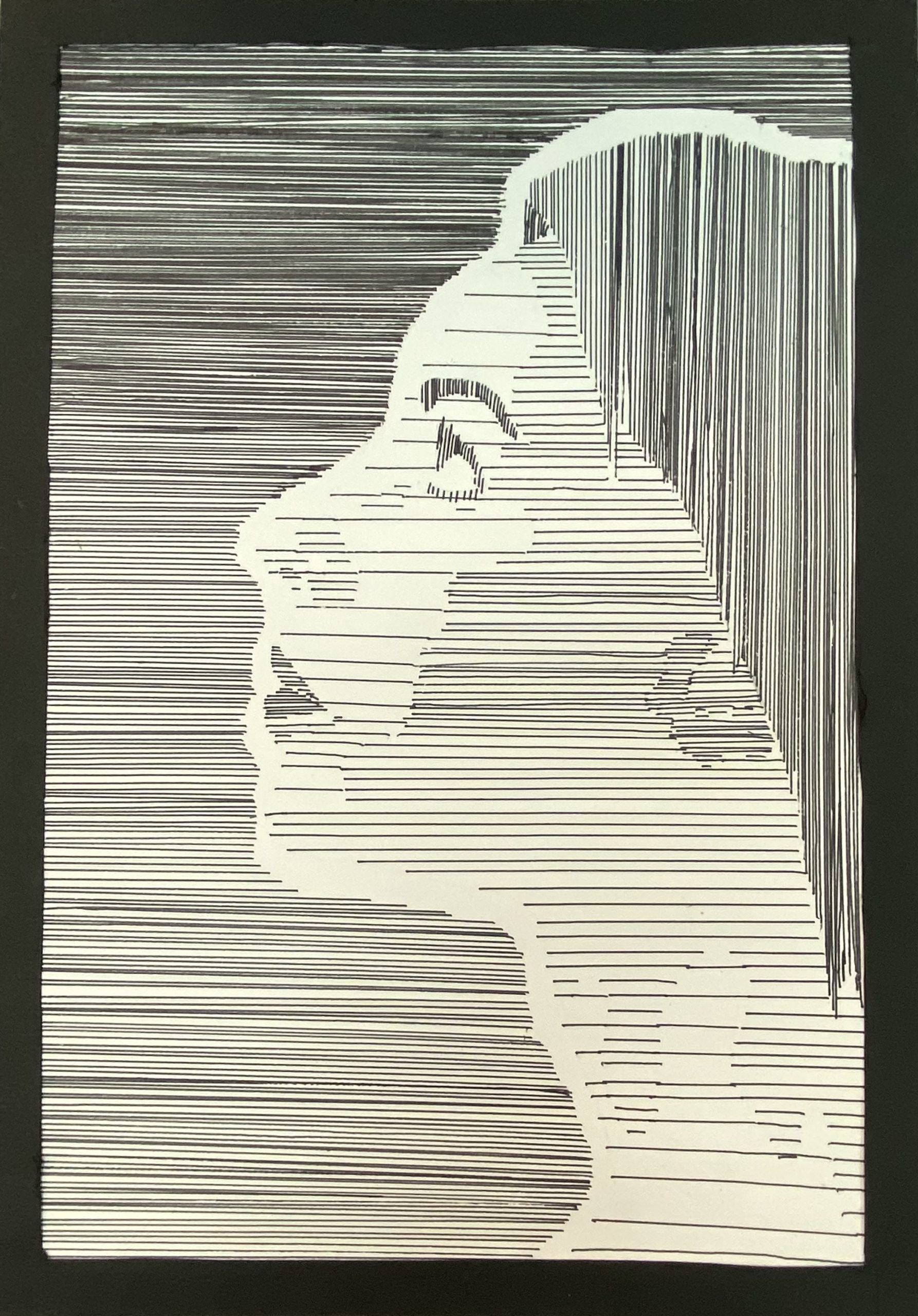Poetry
Contingent Faculties
Midmorning abeam, abuzz, aubade about
walking our old block, applauding the view
that Yonkers is fair facsimile of my twenties. I can’t.
I can’t unthink pariah dogs queuing on rain’s garnet,
canines bared like tracer bullets at the street – nothing new
about collaborating with synecdoche of oneself.
The past. I could touch it almost, open
the day like a devotional book, work its clasp like
a dog’s flews and stare down its gullet, gasp
into living dark. Wycliffe called it
vtmer derknessis in St. Matthew’s account
of the healing at Capernaum (the desperate centurion
with his palsied son), translating Christ’s address as Parable of the Weeds
ther schal be wepyng and gryntyng of teeth.
My mind works through this forecast of tears
and how it was ten years before I first came to New York
that I last took the bus from Echo Industrial Park,
believing it possible, then, to be reborn as morning
is, shedding night’s clothes at the close of shift.
Now I dog the blunting of an uncertain future
at midcareer. Health to the new bosses, sure.
As Christ sat at meat in Matthew’s house,
loud as a beaten dog, perhaps my namesake knew
the thousand ways to be shameless in a small town.
Perhaps knew that for small men, leaving leaves
nothing to choose between living & the life.
Neighbor
When the next-door neighbor
Molotov cocktailed our house
just after a midnight in June,
all four of us were asleep, we
who’d moved back home to the
Pacific Northwest after two
decades of lake effect snow,
thanks to those bodies of water
known as the greats. Their
delivery, similar to his, dropped
a cold so quick we’d often wake
like we did when the firemen
lumbered through our house
that hot night. Sometimes, the
Michigan snow kept closed
all that could open. Sometimes,
our next-door neighbor stood
out in the rain, his neck craning
at the possibility of drones above.
Snow can fool you, if you look
at it long enough. Everywhere
starts to look like it’s down.
If you don’t have an opening,
thoughts can take you there,
too. At the trial, our next-door
neighbor confessed to thinking
we were the bad neighbors from
years ago. I opened a door in the
place where I live. I asked him to
come inside.
Wilting Winters
I ponder on the idea of great fields,
Petals falling from yellow roses,
How their stems wither upon departure.
The winter mornings resist blooming,
Dandelions carry away until spring,
Frost creeps over their corpses.
Their memories live in the depths of summer,
November air fades the tint,
And no small hands
Reach for them to carry inside before dinner,
As mom cooks over the oven,
And dad comes home too late.
The grass of the fields never stops swaying, even
As the air begins to dim
And flowers wilt.

Jump Then Fall
I think it’s funny you chose a cheetah print notebook with a hot pink stripe down the middle. On the cover, you wrote your name. Harry. Your lines and curves in each letter are crooked, shaky like my hands as I flip it open and thumb through the pages. Your rich brown thoughts poured on each page, stained by the tobacco on your fingers. I imagine you, sitting on the left end of the couch, journal teetering on the rounded arm, a Pilot G2 in hand. Names, a doctor’s phone number, the bank’s phone number, medicines you were taking, why you were taking them, dreams you had—all written in slanted black ink on cream pages. I hold a portal to your thoughts in my hands and every time, with no ounce of hesitation, I jump in.
Asking Why on the White River
Asking why on the White River,
you tell me about the time you tried
to kill yourself, dropping to the side
of a California highway.
Later that night
I’m spitting tobacco juice down the drain,
remembering how I laid crucifix in the grass,
touched it with trembling hands in triumph
at the memory of a near six year drawl
prophesying over me: the grass
would never be greener.
Known only by the glow of cheap cigars
I tell you why I won’t sing hymns.
You tell me you were in love once.
I ask myself how to know what it feels like
and why time is a mechanism
of middle grade clarity.
The spin and ache of hours draws truth
from history, admissions staining the water
in incantations of suffering. Nicotine
behind my eyes, beneath my tongue
like a rudder as I say to the sky
I never wanted the grass.
I wanted what is now in front of me:
tall trees casting silhouettes on black water.
Perpetuity
Noun
the state or quality of lasting forever I wish I remembered the last time I rode in your car. I do remember other rides. Climbing into the cramped backseat of the ‘96 Sentra—always behind the passenger’s seat, never the driver’s—ingrained in me to always buckle up first. The resounding click of the belt locking into place and I could relax, slumping back against gray seats, the fabric like soft fuzz on the skin of a peach. Mema hated to drive so you were always the one behind the wheel, the one to always reach a hand back, crossing through patches of sun warming my legs until you found me. A knee. A calf. A hand. The small fingers of a child curling around your doughy skin, aged with wrinkles and rough work but always gentle with me. Maybe it’s better I don’t remember the last car ride with you where your eyes were failing, tires crossing the double yellow, your mind shaded by clouds. Instead I am six, seven, eight years old, forever safe in the bubble of your blue car, sunshine bathing my legs and your hand clutching mine.

